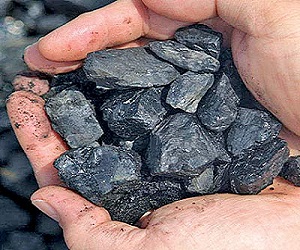

Cosmetics Sectional Committee has published two Indian Standards for raw materials/ingredients for use in cosmetics, namely, IS 4707 (Part 1) : 2017 Classification for cosmetic raw materials and adjuncts : Part 1 Colourants and 4707 (Part 2) : 2017 Classification for cosmetic raw materials and adjuncts : Part 2 List of raw materials generally not recognized as safe for use in cosmetics which are widely used by Central Drugs Standard Control Organization (CDSCO) and Food and Drug Administrations (FDAs). Moreover, IS 4707 (Part 1) is referred in the Drugs and Cosmetics Rules for colourants to be used in cosmetics.
30 Indian Standards on finished cosmetics are listed in Schedule ‘S’ of the Drugs and Cosmetics Rules, 1945 as per which the cosmetics in their finished form (manufactured or imported) need to conform to these Specifications.
3Drugs and Cosmetics Rules 134 and 144 stipulate that no cosmetic shall contain dyes, colours and pigments other than the one specified by the Bureau of Indian Standards (IS: 4707 Part I as amended) and Schedule Q of D&C Rules, 1945. Indian Standards for the following cosmetics are listed in Schedule S :
i) Skin powders (IS 3959)
ii) Skin powders for infants (IS 5339)
iii) Tooth Powder (IS 5383)
iv) Tooth paste (IS 6356)
v) Skin Creams (IS 6608)
vi) Hair Oils (IS 7123)
vii) Shampoo, Soap-based ( IS 7669)
viii) Shampoo, Synthetic-Detergent based (IS 7884)
ix) Hair Creams ( IS 7679)
x) Oxidation hair dyes, Liquid (IS 8481)
xi) Cologne (IS 8482)
xii) Nail polish (IS 9245)
xiii) After shave lotion (IS 9255)
xiv) Pomades and Brilliantines (IS 9339)
xv) Depilatories chemicals (IS 9636)
xvi) Shaving creams (IS 9740)
xvii) Cosmetic Pencils (IS 9832)
xviii) Lipstick (IS 9875)
xix) Lipsalve (IS 10284)
xx) Powder hair dyes (IS 10350)
xxi) Bindi (Liquid) (IS 10998)
xxii) Kum kum powder (IS 10999)
xxiii) Henna powder (IS 11142)
xxiv) Sindoor (IS 14649)
xxv) Liquid foundation make-up (IS 14318)
xxvi) Cold Wax-Hair remover (IS 15152)
xxvii) Face pack (IS 15153)
xxviii) Kajal (IS 15154)
xxix) Oxidation Hair Dyes (Emulsion type) (IS 15205)
xxx) Cream Bleach (IS 15608)
ii) Indian Standards on Plastics::
Food Safety and Standards Authority of India (FSSAI) has issued Food Safety and Standards (Packaging and Labelling) Regulations, 2011. As per this Regulation, Containers made of plastic materials should conform to the following Indian Standards Specification.
i) IS 10146 Specification for Polyethylene in contact with foodstuffs);
ii) IS 10142 Specification for Styrene Polymers in contact with foodstuffs;
iii) IS 10151 Specification for Polyvinyl Chloride (PVC), in contact with foodstuffs;
iv) IS 10910 Specification for Polypropylene in contact with foodstuffs;
v) IS 11434 (Specification for Ionomer Resins in contact with foodstuffs);
vi) IS 11704 Specification for Ethylene Acrylic Acid (EAA) copolymer.
vii) IS 12252 – Specification for Poly alkylene terephathalates (PET).
viii) IS 12247 – Specification for Nylon 6 Polymer
ix) IS 13601 – Ethylene Vinyl Acetate (EVA);
x) IS 13576 – Ethylene Metha Acrylic Acid (EMAA)
Through reference in IS 13428 – Packaged Natural Mineral Water and IS 14543 – Packaged Drinking Water, the following Indian Standards are mandatory to follow:
xi) IS 15410 – Containers for Packaging of Packaged Natural Mineral Water and Packaged Drinking Water
xii) IS 15609 – Polyethylene flexible pouches for the packing of natural mineral water and packaged drinking water
The Plastic Waste (Management and Handling) Rules, 2016 refer to IS 14534 for recycling of plastics, recycling facilities, recycled carry bags and labeling and marking of recycled carry bags. Determination of the degree of degradability and degree of disintegration of plastic material shall be as per 09 Indian Standards listed in Schedule-I to these rules.
Last Updated on November 3, 2018